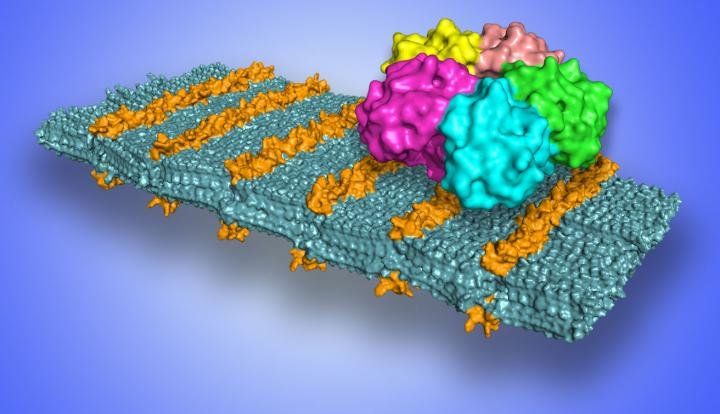In this way the new platform, developed by a team led by scientists at the U.S. Department of Energy’s Lawrence Berkeley National Laboratory (Berkeley Lab), could potentially be used to inactivate or detect pathogens.
The team, which also included researchers from New York University, created the synthesized nanosheets at Berkeley Lab’s Molecular Foundry, a nanoscale science center, out of self-assembling, bio-inspired polymers known as peptoids. The study was published earlier this month in the journal ACS Nano.
The sheets were designed to present simple sugars in a patterned way along their surfaces, and these sugars, in turn, were demonstrated to selectively bind with several proteins, including one associated with the Shiga toxin, which causes dysentery. Because the outside of our cells are flat and covered with sugars, these 2-D nanosheets can effectively mimic cell surfaces.
